Governance, Communication, Consensus

Consensus is the Key
How do we achieve consensus?
It all starts with communication.
Communication is the foundation of humanity as a species.
Without communication we'd all be just as basic as chimps.
Without communication, we wouldn't know even basic math.
Hell, even the concept of numbers and time itself would not exist.
We know what a minute is because we were told what a minute is.
The color blue didn't even exist until shockingly recently.
ancient languages didn't have a word for blue — not Greek, not Chinese, not Japanese, not Hebrew. And without a word for the color, there is evidence that they may not have seen it at all.
Ah well that's insane!
The very way that we perceive the world is 'colored' by how we describe it to others. Without consensus, the color blue does not even exist. Once we realize this fact, we can begin to understand that there are many failings in communication that lead us to experience and interpret the world is a very flawed or even incorrect way.
For example in my last post I was talking about how we should be printing money to make number go up and tightening financial policy (dialing back the money printing) to make number go back down (creating elasticity to match current demand). To me, this is as clear as day: The sky is blue. Yet you will see the comments are full of people being making the claim that the sky is 'obviously' not blue. It is though. Pretty sure.
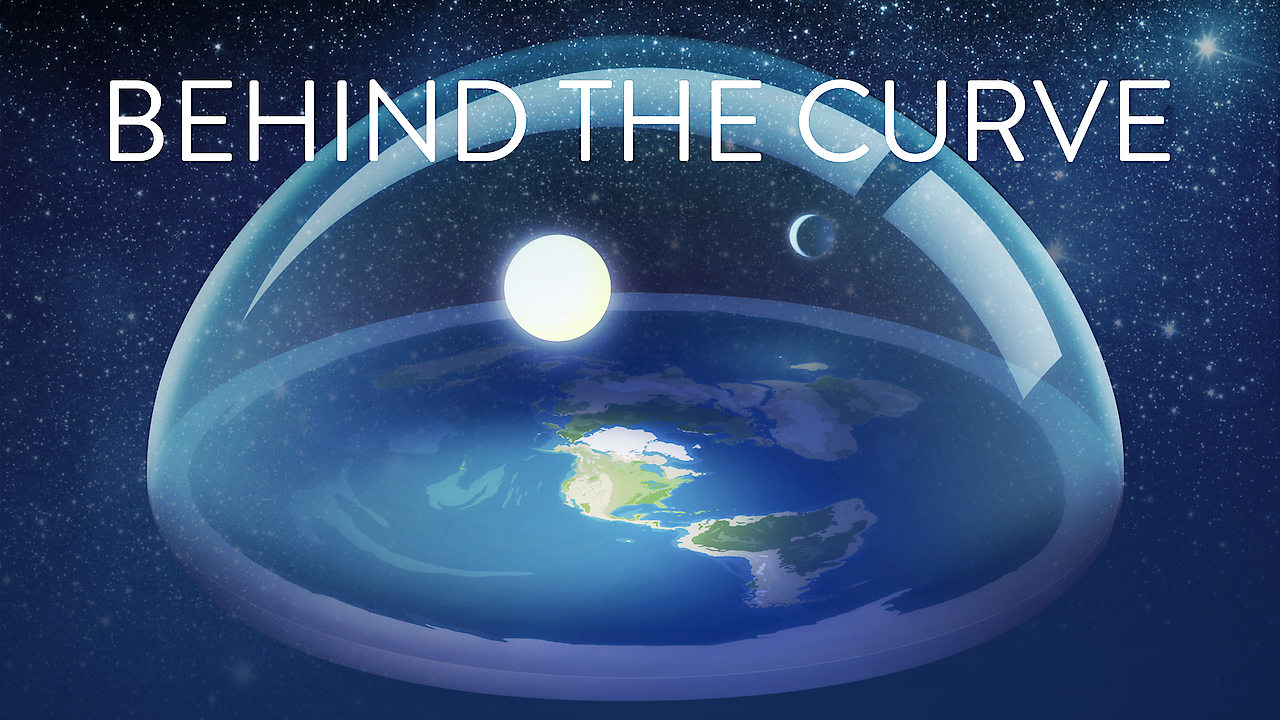
The Earth is round because you were told it was round.
And now there are some people who believe the Earth is not round. How did that happen? We see that communication within society is breaking down at the seams. There are citizens out there that are so completely disillusioned by the systemic overarching corruption of modern data that they don't even allow themselves to believe something as basic and widely accepted as a spherical Earth.
And you might think that's unreasonable.
But it is not unreasonable. It is a perfect logical thing to do when faced with the fact that we can not trust a single person in power. Not one. Every single trustworthy champion of the people that ever ascended to power over the last hundred years has been outright assassinated or died under mysterious circumstances.

Name a single billionaire you can trust.
How about a single politician.
They don't exist.
They've been weeded out by a system that profits from deceit and dishonor. All that's left are vipers and snake-oil salesmen.
And so, we have a communication problem.
The thing that has made humanity so great is also the thing holding us back right now. We need to upgrade communication, as we have done over the years.
- First with language.
- Then with the written word.
- Then with books and libraries.
- Then with the printing press.
- Then with the Internet.
- And now with crypto.
I will admit, that it is very odd to think of money as a form of communication. However, the communication of value from one human to another within modern society is arguably the most important aspect of the problems we currently face. Money is intangible. It isn't real, just like the color blue, it is something we just made up and decided it had value. Our perception became reality, as if often the case.
It all boils down to trust.
Trust is the most valuable asset in the world right now. Demand is high, and supply is very very low. We keep being instructed to trust the institutions that hold all the levers of power in the world. Then when that power is abused and we refuse to continue trusting these entities, we become the unreasonable ones and end up getting whipped back into line one way or another.
This process has been going on for so long now that the corruption isn't even being hidden anymore. It's expected that we should just look away and pretend it's not happening, rather than them go through great lengths to hide it like they did before. These are the signs of an end to an empire. The fall of Rome is coming.
So the question we have to ask ourselves... is there a safety net in play here? When the empire falls can we still get our basic needs met? Food, water, shelter, internet, power, logistics? The answer is unequivocally 'no' for over 99% of the population, so I guess we're all just planning on winging it! Should be fun. Luckily these things don't happen instantaneously so there should be major red flags going up during that time.

So it all comes down to governance.
How can we govern ourselves when the powers that shouldn't be keep failing us over and over again while claiming the results will be different the next time around? There are a surprising amount of ways to govern a group of people, most of which have all devolved into an extremely toxic system that didn't work very well. Can we do better? Hopefully!
Capitalism
The idea behind capitalistic governance is pretty straightforward. I'd say that most people understand capitalism well enough as it is often the standard by which other forms of governance and economics are measured.
The driving principle behind laissez-faire, a French term that translates to "leave alone" (literally, "let you do"), is that the less the government is involved in the economy, the better off business will be, and by extension, society as a whole.
However, Laissez Faire capitalism is basically anarchy. Everything is an unregulated free market; no government intervention. Some people like the idea of Laissez Faire, especially when regulations get very heavy handed, but we already know for a fact it doesn't work. There's a reason why regulations come into play, and the reason is that randomness (volatility) and unmitigated greed of a free market can lead to disastrous results.
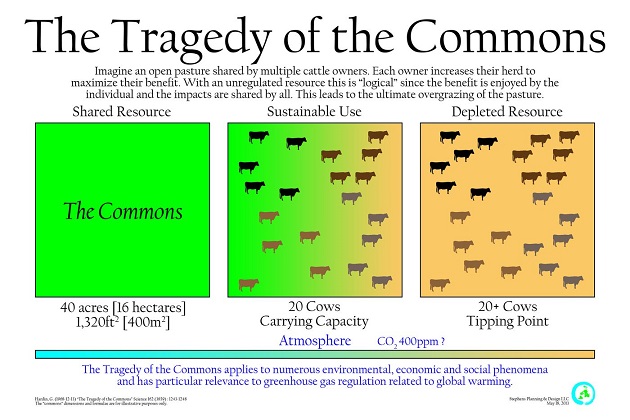
Which leads us to socialism.
The entire world is basically a combination of capitalism and socialism. Even the CCP (chinese communist party) isn't actually communist. Just like everyone else, they are capitalists and socialists (emphasis on the socialist). That's just how it is when operating on a global stage where international companies are constantly interacting with one another. Profits are capitalism and pretty much everything else is socialist.
- Taxes and tariffs are socialist.
- Subsidies are socialist (carbon credits, food stamps, etc).
- Sanctions are socialist.
- Literally all regulations are socialist in nature.
So we can't really make the claim that "socialism is bad"
Obviously corrupt heavy-handed socialism and intervention on a global scale is terrible, but there's a good reason why a lot of these rules and regulations exist. The answer isn't always a bad one.
It's also just very difficult to define these terms, as everyone has a different idea of what they actually mean. Again, it all comes down to a failure of communication and lack of consensus.
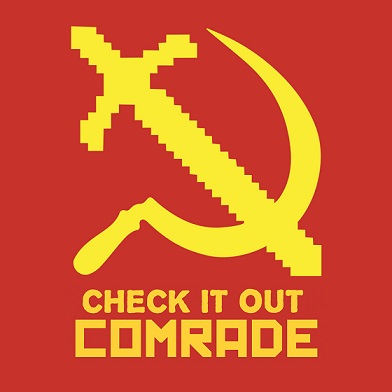
How would we implement communism?
Well, first of all, what is it? If we define 'communism' as everyone gets their fair share, perhaps communism could be implemented by even-split profit-sharing. Create a community, and everyone in the community gets the same wage (universal basic income). If that wage was based on crypto, citizens would never even need a raise because the value of the token would theoretically be going up over time.
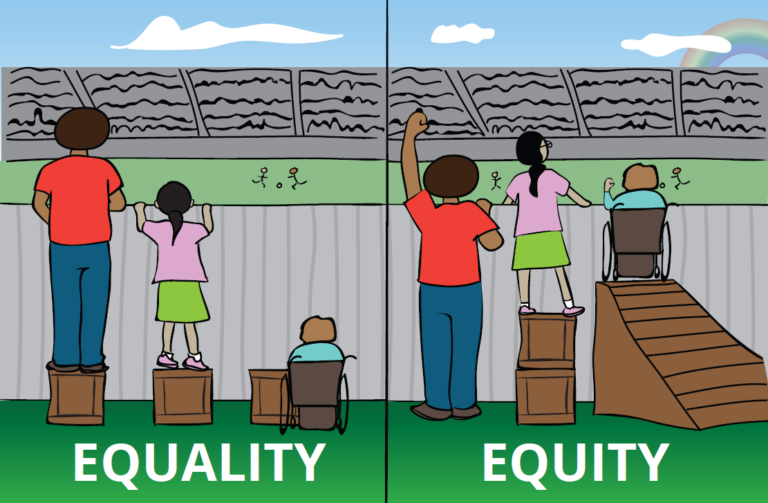
Didn't they build that fence so people couldn't watch the game for free?
Is that communism, or a co-op?
A cooperative is defined as a user- owned and controlled business from which benefits are derived and distributed equitably on the basis of use or as a business owned and controlled by the people who use its services. In many respects, cooperatives resemble other businesses.
Depends on the size of the organization I suppose.
If it's a couple thousand people... perhaps it's just an incorporated entity. If it's millions of people, well then perhaps it's communism. Again, everyone defines these concepts differently. The lack of consensus is real.
But then what happens?
So we've created our communist "utopian" society. Everyone getting paid the same amount; it's all very grand. Unfortunately, some of the members of society just decide to stop working. Bound to happen, right? Why work when there's very little incentive to do so? Some people have this attitude. Other's don't. Everyone is different.
For many the ideal communist society would be one where everyone, "Gives what they can and takes what they need." It's more about equity than equality. Unfortunately we already know from thousands of years of history that the honor system and egalitarian altruistic models have a way of collapsing due to unsustainability. Always a fly in the ointment. This is why we can't have nice things.
So perhaps our wonderful communist society comes up with 'solution' to this problem. The ability to vote people out of the community and stop giving them an equal share of the spoils. So all the freeloaders get banished or demoted, but what happens next?

It could turn into a popularity contest.
Generally disliked people might get banished even though they are doing their fair share. Even worse, extremely popular people could end up making all the rules with no one to oppose them for fear of being banished. Doesn't sound very utopian, does it? It never is.
Then a few decades down the line imagine they start voting old people out of the community after they retire. Okay, that's just ridiculous, I guess now we need to create some more rules on top of the rules to balance out the problems to the solutions to the problems. And then maybe we'll need to make some rules to fix the problems created by the solutions to the problems created by the solutions to the original problems. Yes, this is totally going to work guys, I can feel it. Except now it's not even communism anymore, we've looped right back into socialism. Whoops!
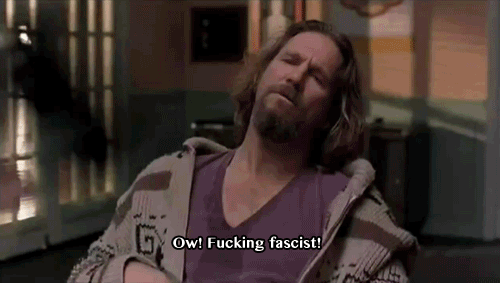
What about fascism?
It is possible to implement fascism in a non-toxic way?
What would that even look like?
How do we define it?
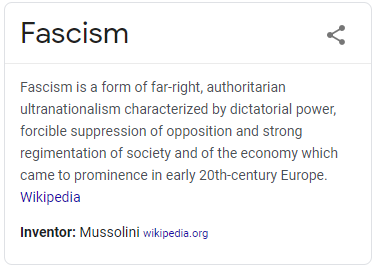
"Ultranationalism"
When reduced down to its purest form, fascism is the ultimate implementation of the ideology, "The needs of the many outweigh the needs of the few." Within a fascist system, the government is more important than your friends and your family. Your loyalty to the state would supersede all other loyalties.
Now obviously that sounds like a hellish nightmare, which is confirmed by history and all the real-world implementations of it. However, none of this is helpful when trying to guess if crypto could turn it into something legitimate.
Already we see the tribalism and cultish maximalist attitude that has popped up in crypto, and we aren't even close to mainstream adoption yet. Imagine when mainstream adoption actually hits. It's going to be insane. Pair that with an extremely unstable geo-political landscape and fascism very well might make a reappearance in a form that we could have never imagined.
The true point I'd like to make here is that all of the poor-performing governance structures in this world have one thing in common: centralized control that inevitably leads to absolute power and corruption. What I really want everyone to ask themselves is simple: What happens when crypto makes this problem a relic of the past? Theoretically it opens the doors for dozens of impossible governance structures to suddenly become, not only possible, but also non-toxic, sustainable, and even thriving. Something to think about.
How would I implement a direct democracy?
Ah well technically I'm already part of one on Hive. Hive is both a republic and a direct democracy. Sure, the witnesses represent our interests and make decisions on our behalf, but also it is trivially easy to set up unhackable stake weighted votes for any and all issues. That's exactly how the @hive.fund works. The witnesses are a republic, but our funding mechanism and reward pool are a direct democracy. We will see crypto continually merge multiple forms of governance into a single network as time goes on.
Conclusion
Crypto is providing the world with an opportunity to understand our own social environment in a way that was previously unthinkable. Just like the fact that the sky was not always known to be blue, so too will crypto allow us to interpret and experience governance, trust, and consensus in ways that were unfathomable before the invention of blockchain. Just like seconds did not exist before clocks, so too will the innovation of crypto create things we could have never possibly imagined in advance.
It's very hard to guess just how it will turn out, but I think we can be quite certain that like-minded individuals are going to come together to create governance models that were simply not possible within the legacy system. One of the big problems with all forms of governance are the centralized nature of it. Once that element is removed, Chaos Theory will play out and usher in new systems that could have never been predicted.
Posted Using LeoFinance Beta
Congratulations @edicted! You have completed the following achievement on the Hive blockchain and have been rewarded with new badge(s):
Your next target is to reach 29000 replies.
You can view your badges on your board and compare yourself to others in the Ranking
If you no longer want to receive notifications, reply to this comment with the word
STOPCapitalism, Communism and Socialism are economic models and Authoritarianism, Fascism and Democratic are political models... we can, and do, have Authoritarian Capitalism and Democratic Socialism, for example.
I do wonder if a Trump-like figure came to Hive and gave $1000 upvotes to everyone who wrote great things about him (or it if it was a company or product). It wouldn't be a hostile takeover per se, and obviously some people would leave, but it would also be life-changing for some people, it's a tricky thought experiment and something Hive might have to deal with in the future if it starts to have an impact on the internet.
Yeah the post was running too long to get into all that, but thanks for noticing!
😅
I also wrote this on zero cups of coffee, and my caffeine addiction is a thing of legend at the moment.
Needless to say it was a surreal experience.
Hahaha, I could tell that you were writing this while also seeing sounds and hearing colours.
Do you think Trump earned his wealth or was simply lucky..
nice chat thoughts mr.dicted
we need to work out a system where freeloaders are allowed
#freeloadersarecool
couldn't agree more
Can't trust any billionaire, but millionaires are better.
Hive is dead.
I've read that about the color blue before. I doubt very much it's at all true. However, what matters is that you're spot on about Hive being a government, and while it may not be a perfect government, it's a damn sight better than any other form of government I'm aware of. That may just be because it's not required to fix the roads, but, it also might be a better model for maintaining roads than others.
Let's hope we get to find out.
Thanks!
https://twitter.com/1415155663131402240/status/1584082924378370049
The rewards earned on this comment will go directly to the people( @rzc24-nftbbg ) sharing the post on Twitter as long as they are registered with @poshtoken. Sign up at https://hiveposh.com.
Check out F.A. Hayek’s Use of Knowledge in Society (1945):
https://www.econlib.org/library/Essays/hykKnw.html
Here’s an excerpt (emphasis added):